Ever since talk of COVID-19 has taken over our daily lives, many readers have found solace in pandemic horror books and post-apocalyptic narratives. Perhaps it has something to do with the fact that the proverbial worst has come and gone in these narratives, leaving survivors with the monumental task of adjusting to their new lives and rebuilding the world.
The Stand is one such novel. Considered by many of Stephen King’s fans to be the best book he’s written thus far, it’s a sprawling epic about a deadly strain of influenza that’s wiped out the majority of the world’s population. December 2020 will bring another new adaptation of the novel, this time as a CBS miniseries, to help distract us from our social distancing woes. But if you’re like me, you’ll need more than a couple hours glued to the television screen to escape. Here are 13 books like The Stand that act as remedies, treating darkness with darkness.
Related: Everything We Know So Far About the Upcoming Remake of The Stand: The Miniseries
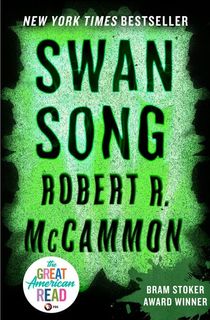
Swan Song
Epic in both length (900+ pages!) and scope, this classic novel by Robert R. McCammon has been a frequent favorite among horror fans for decades. The story follows two groups of outsiders, one good, the other evil, as they navigate a war-torn America with all kinds of supernatural undertones. Though the premise is different, it’s spiritually similar to King’s The Stand. Read it for the similarity, if you like, but I recommend it because it’s so masterfully plotted that even at 950 pages, not a single chapter feels like filler.
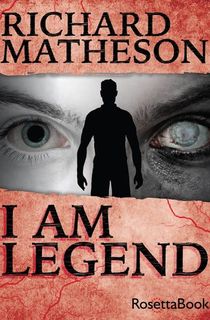
I Am Legend
As one of my all-time favorites, I can’t recommend this book enough. It’s short, but the scope is about as epic as you can get. Following a mysterious pandemic, Robert Neville is the last living human on an Earth run over by weird vampire-zombie hybrids. Neville basks in all manner of vice and loneliness while sharpening his survival skills. All the while, the world around him has started to heal and evolve. And yet, he yearns for human connection, the normalcy of yesteryear. Sound familiar? This one’s required reading if you haven’t picked it up yet.
Related: Richard Matheson: Where to Begin with the Legendary Sci-Fi Horror Author

The Monster Island Trilogy
Wellington’s Monster trilogy—Monster Island, Monster Nation, and Monster Planet—places the focus on evil, or in this case, a zombie threat. The books are every bit as fun and adrenaline-fueled as the best of the post-apocalyptic zombie genre, but where Wellington’s work stands out is in its blending of fantasy and realism.
The political strife that would arise if zombies overran the world is taken into full account, with Dekalb, the main character, finding himself captured by a Somalian warlord. Wellington takes us through to the end of politics with his trilogy, when the global economy finally crumbles and leaves behind a world unlike our own.
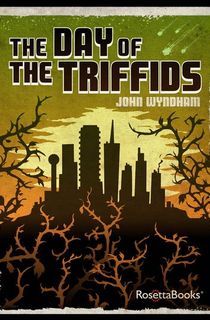
The Day of the Triffids
Before George Romero and the zombie phenomenon, John Wyndham wrote this prescient novel about giant killer plants. Bill Masen works with a species of plants called triffids that are suspected to have been the result of Russian bioengineering. After a discovery that the plants could have practical purposes for the production of oil, cultivation increases with reckless abandon.
Related: 10 Urgent Horror Books That Tackle Climate Change
Guess what happens next? The plants fight back. The age-old trope of man vs. nature blends artfully here with modern fears about climate change. Wyndham has clearly seen what many simply find too difficult to face head-on: the wasting away of our planet.

A Boy and His Dog
Harlan Ellison’s A Boy and His Dog is set in a destroyed wasteland, where a boy named Vic has grown up fending for himself. With no parents or education to speak of, he has no understanding of ethics or morality, which results in his disturbing symbiotic relationship with a telepathic dog named Blood: Vic scavenges food for both of them, and in exchange, Blood finds women for Vic to sexually assault.
The world Harlan Ellison created is different from many post-apocalyptic narratives, with good vs. evil giving way to man vs. woman. This novella is frequently recommended and won a Nebula Award despite its incredibly polarizing reception; it's sure to bring up a multitude of questions about human nature.
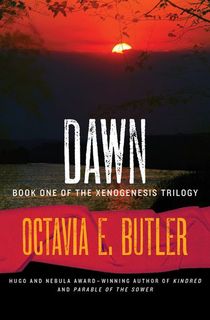
Dawn
The first in Octavia Butler’s Xenogenesis Trilogy, Dawn introduces readers to Lilith Iyapo at a most vicious and decimating moment in her life. She has lost both her husband and son, the world is at war, and then fire consumes the Earth, killing billions. Along with a group of survivors, Lilith is snatched by an alien species called the Oankali and saved from Earth’s destruction.
Related: 12 Dark and Extraordinary Pandemic Books to Make You Feel Less Alone
Of course, the aliens have their own reasons for rescuing them. The survivors are comatose for centuries while the Oankali study them. Butler’s grasp of world-building is impressive, and while her exploration of biotechnology and transhumanism was certainly ahead of its time, it’s quite timely for contemporary readers.
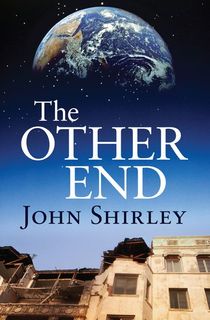
The Other End
John Shirley takes the idea of giving up on the world as we know it and starting over, and runs with it. Referring to the end as “Judgement Day with justice,” Shirley envisions the end of the world as a wave of light and a descent into panic, which then leads to individual introspection. We see this transformation through the eyes of a newspaper reporter named Swift, all while this righteous end of days resets the world. There are definitely Biblical allusions throughout the text, but its premise is decidedly appealing even if you’re not interested in religion.

The Passage
Justin Cronin’s The Passage is another popular choice. The story starts with a bioengineered virus that the military accidentally leaks, and quickly morphs into a tale of monsters and survival. The novel expertly blends all the typical tropes and spins a tale with a large cast of characters, some of whom survive the virus and go on to experience strange mutations. The book is another epic in size too, coming in at 700+ pages, and has evolved into a trilogy. You bet this is by definition a page-turner.

Oryx and Crake
Man, Margaret Atwood can really bring the horror. And I mean that psychological, highly nuanced brand of horror that keeps you up at night, unable to stop thinking about it. In this novel, the first in her MaddAddam trilogy, Atwood introduces us to a post-apocalyptic world. Told from the perspective of a character named Snowman, who is believed to be the last survivor of the apocalypse, we are given testimony of exactly how the world ended, and how the living evolved into a species he calls the “Crakers.”
It all comes down to Atwood’s amazing worldbuilding, which is among her best, right alongside The Handmaid’s Tale. In terms of post-apocalyptic narratives, this one (and the other entries in the series) should not be missed.

Station Eleven
Like I Am Legend, this is one of my all-time favorites. It’s a book that every reader of post-apocalyptic fiction should read, especially if you love a sweeping epic that spans large stretches of time. A quick-acting and debilitating virus decimates the world. Many years later, survivors navigate an unfamiliar and deadly land, and what makes Station Eleven so different is its human focus on the memories and bonds of its characters. This is the sort of post-apocalyptic novel that hits the hardest, because amid all the struggle, there is still a spark of human connection.
Related: 13 Mind-bending Sci-Fi Horror Movies You May Not Have Seen

Severance
Ling Ma’s award-winning novel is truly a refreshing take on the apocalyptic virus formula. The premise is also very familiar to books like The Stand in that our main character finds herself in a traveling group looking for sanctuary. It begins in about as close to the modern day as I’ve seen in a post-apocalyptic novel, with tech startups, social media, and smartphones. It’s this new fresh take, coupled with a human tenderness, that makes Severance a new highwater mark for post-apocalyptic fiction.

Pontypool Changes Everything
The idea explored in this novel is an unusual one: language itself is infected. Whenever people come across an infected word, it causes them to lose their minds and transform into zombielike creatures. To this day, it’s a great concept that makes for compelling reading. There’s a solid film adaptation too, with the screenplay written by Burgess himself.

Wanderers
Chuck Wendig’s latest is truly epic, weighing in at 800 pages. In Wanderers, people suffering from some sort of virus end up sleepwalking…to their deaths. At the center of the story, we have young Shana, whose sister is the first glimpse readers get at the sleepwalking epidemic. Shana becomes a “shepherd,” someone that follows the mass of sleepwalkers from a distance, along with others who have loved ones that suffer from the same malady. The exciting narrative possibilities are undeniable, and will have you hooked from the first page.
Related: Stephen King Recommends 16 Creepy Horror Movies & Shows You Should Watch on Netflix
This post is sponsored by Open Road Media. Thank you for supporting our partners, who make it possible for The Lineup to celebrate the horror stories you love.






